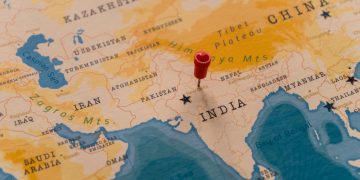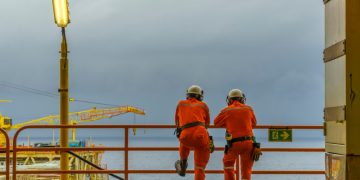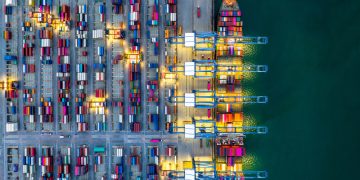For over eight decades, antibiotics have been essential in combating bacterial infections. However, irresponsible usage and a lagging development pipeline have propelled the world to a tipping point.
According to The Lancet, drug-resistant infections are rising steeply, with projections of 10 million annual deaths by 2050. This “silent pandemic” is particularly significant for seafarers, whose unique environment demands proactive measures to protect health and prevent medical crises onboard.
A global health crisis unfolds
Antimicrobial resistance (AMR) is now the third most lethal condition among infectious diseases, trailing only COVID-19 and tuberculosis, depending on the year. “AMR kills more people each year than HIV and malaria,” noted Shyam Bishen, head of the Centre for Health and Healthcare at the World Economic Forum. “It may soon rank among the top 10 causes of death worldwide.”
The dwindling pipeline of antibiotics
The crisis is exacerbated by a near-stagnant development pipeline. The World Health Organization (WHO) highlighted in November 2023 that only 27 new antibiotics are in clinical development, with a mere six classified as innovative. Peter Sands, executive director of the Global Fund, aptly referred to AMR as a “silent pandemic” that has crept into global health priorities but remains inadequately addressed.
This lack of innovation is compounded by global shortages of approved antibiotics, including generics, which pose challenges across all income levels. “Not enough resources are going into the research and development side to discover and produce alternative drugs,” Bishen said. “There’s not enough push and pull.”
The maritime challenge
Seafarers are particularly vulnerable to the impacts of AMR due to limited access to professional medical care onboard. Ships’ Masters, while authorized to make medical decisions, often lack sufficient training to distinguish between bacterial and viral infections, leading to inappropriate antibiotic use. This misuse can worsen health outcomes and increase operational disruptions, including hospitalizations and repatriations, creating financial strains on maritime companies.
Dr. Jens Tülsner, CEO of Marine Medical Solutions (MMS), emphasized the importance of telemedicine in such cases.
We are witnessing a troubling trend where Masters and seafarers, with little medical knowledge, are resorting to antibiotics as a quick fix for various health issues onboard vessels. The improper use of antibiotics not only fails to address the root cause of the illness, for example it will have no impact on viral infections such as colds and influenza or other more serious illnesses, but may also leave users vulnerable to unnecessary and unpleasant side effects.
Recommendations for Action
To address AMR in maritime settings, the following steps are critical:
- Leverage telemedicine: Encourage Masters to seek telemedical consultations for professional advice before administering antibiotics.
- Enhance training: Provide seafarers with education on distinguishing bacterial infections from viral ones and the proper use of antibiotics.
- Strengthen protocols: Establish clear guidelines for when antibiotics are appropriate, and restrict self-prescription onboard.
- Support global efforts: Advocate for investments in antibiotic research, particularly for drugs targeting Gram-negative bacteria, and ensure equitable access to these medications.
- Maintain political momentum: Use forums like the G7 and United Nations to prioritize AMR. As Helen Clark, former prime minister of New Zealand, urged, “We must use our voices in every single forum to keep this at the top of the political agenda.”
A call to action
AMR may be a “silent pandemic,” but its impacts are unmistakable. Over 1 million deaths annually are directly attributed to AMR, with nearly 5 million linked indirectly. During the COVID-19 pandemic, antibiotic misuse surged, with studies showing that 75-80% of COVID patients were prescribed antibiotics unnecessarily. This misuse underscores the urgent need for change.
Bishen optimistically noted that global leaders are beginning to act. The G7 has made AMR a priority, and the European Union is advancing a “One Health” approach, recognizing the interconnectedness of human, animal, and environmental health. Still, as Stella Kyriakides, EU commissioner for health, aptly put it, “We need to turn this commitment into a reality.”
For the maritime industry, addressing AMR means safeguarding the health of seafarers, ensuring the continuity of global trade, and contributing to a broader solution to this growing crisis. The time for action, as Clark emphasized, “was yesterday. But if we didn’t act yesterday, we can act today.”
By using antibiotics responsibly, leveraging professional medical advice, and supporting global efforts to combat AMR, the maritime community can play a pivotal role in preserving these life-saving drugs for future generations.




























































